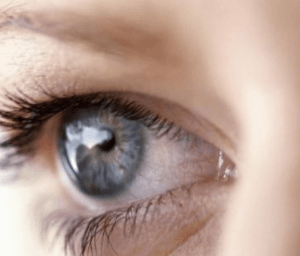By Jonny Bowden, PhD, CNS aka “The Nutrition Myth Buster”™
You probably know that sugar is death to the eyes, and that using vegetable oils is bad. You also know you should eat a low glycemic diet, but what specifically should you be eating? What specific supplements should you be taking if you really want to protect your vision?
 Earlier this week, I wrote about the work of Chung-Jung Chiu on “Diet in the Vision”. Chiu found that carbs, and especially high glycemic carbs, sent the risk for every bad eye issue skyrocketing. Why does that matter to you? Because, with a few very simple changes you can significantly reduce the risk factors for the major health conditions that steal your eyesight as you grow older.
Earlier this week, I wrote about the work of Chung-Jung Chiu on “Diet in the Vision”. Chiu found that carbs, and especially high glycemic carbs, sent the risk for every bad eye issue skyrocketing. Why does that matter to you? Because, with a few very simple changes you can significantly reduce the risk factors for the major health conditions that steal your eyesight as you grow older.
#1. Eat a classic Mediterranean diet. This diet has been found to benefit just about every single condition you can imagine and reduce the risk of any future health issue.
Think of it not so much as a specific diet, but as a pattern of eating. It’s a pattern of eating that has a lot of fresh, organic food and lots of fruits and vegetables in tons of gorgeous colors. It is loaded with olive oil, legumes and fish.
#2. Get enough protein. Where it gets really interesting is the amount of protein you need to consume daily. The British ophthalmologist Stanley Evans (who has been studying cataracts for 40 years) has found that in many cases people with vision issues have a protein deficiency. Evans recommends a minimum daily intake of 70 to 80 grams of protein to protect the eyes.
The coauthor of my next book, “Smart Fat,” Dr. Steven Masley and I actually decided on a protein recommendation between 80 and 120 grams a day for most people! (Be on the lookout for the “Smart Fat” book, coming out in January 2016, Harper Collins.) What we recommend is very close to what the eye doctor says. His 70-80 grams is the minimum, we’re saying 80-120 grams, so 80 grams should be the. That amount of protein will absolutely make a difference to your vision and to your eyes.
#3. Color your world with food! Next, add specific foods like kale, spinach, cooked collard greens, cabbage, which are all rich in lutein, which is one of the most effective antioxidants in the carotenoid family benefitting the eye itself. Other foods that have a lot of lutein are kiwi, grapes, and egg yolks. (Yes, egg yolks are GOOD for you – as long as they’re cage free and organic.)
Think red: specifically, red colored seafood. Go for wild salmon from Alaska. The red color comes from astaxanthin, which is a powerful antioxidant that’s found in krill (which is what wild salmon eat). Think blue: blueberries, blackberries, purple grapes, they all contain anthocyanins, which help promote the production of particular retinal pigments that are critical for vision in dimmer lights. Finally there’s alcohol (and specifically wine). In the Australian Blue Mountain Eye Study, those who had one or two drinks a day actually lowered their risk of developing cataracts by 50% compared to those who had either more than two drinks or none at all. There’s a sweet spot in there: one to two drinks a day.
So far, here is our eye food prescription list: Fatty fish; Mediterranean eating plan; Olive oil; Vegetables, especially kale, spinach, collards, and cabbage; Blue fruits, like blueberries, blackberries, black grapes; And moderate alcohol and the right supplements.
#4. Always follow the Big 3: exercise, don’t smoke, and wear sunglasses. And keep in mind that a lot of medications, including statin drugs, antibiotics and hypertensive meds, can really increase the risk of eye problems as well.
#5. Get the RIGHT Supplements for Vision: In the AREDS study, they tested the effects of specific vitamin supplements, Vitamin C, Vitamin E, beta carotene, and zinc to find that they provided a very significant 25% reduction in risk. A number of companies market the original ARED formula. Because of a later research, many added fish oil, lutein and zeaxanthan.
If you’re not taking one of those eye specific formulas based on the original ARED research, here’s what you should still make sure you’re including every day if you want to protect your eyes. Start with the antioxidants, especially carotenoid, it’s like lutein and zeaxanthan and they’re both found in egg yolks and all those green vegetables that we mentioned earlier. Get at least one to three grams of Vitamin C and at least four hundred IUs of Vitamin E. Both of those were used in the original ARED study. With the Vitamin E, make sure you get the mixed tocopherol or the gamma heavy tocopherol (about 400 IUs of that along with the one to three grams of Vitamin C). Fish oil, at least one to two grams a day. I especially like Barlean’s high EPA DHA. Lastly, a good B complex including folate in the methylfolate form, not folic acid. That’s a great start for eye health.
What we’re finding out, in the end, is that so many of the conditions we thought were inevitable consequences of aging are actually not, or at least much more modifiable than anybody thought. Your vision, your eyes are a prime example of the food you eat. The supplements you take really do matter.
SEE you soon!
Dr. Jonny
By Jonny Bowden, PhD, CNS aka “The Nutrition Myth Buster”™





